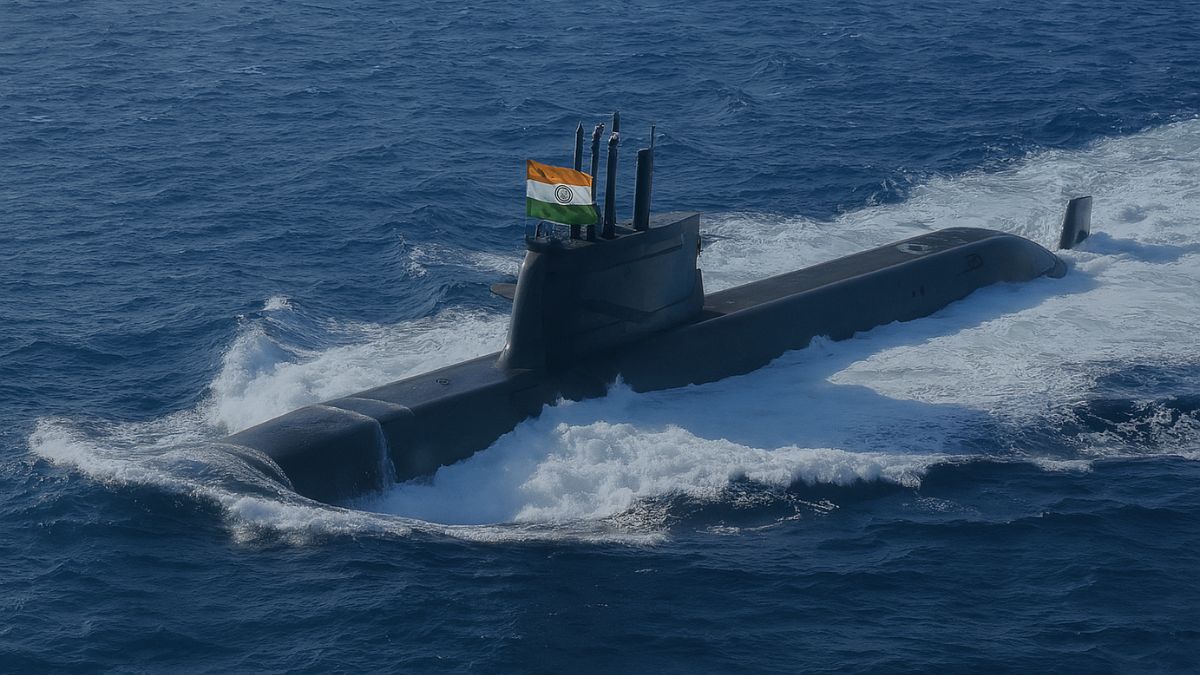India is set to embark on its largest-ever defence contract, valued at Rs 1.06 lakh crore, to significantly strengthen the Indian Navy’s underwater capabilities. The deal, aimed at enhancing India’s maritime strength, comes amid escalating geopolitical tensions in the Indo-Pacific, particularly due to China’s growing presence in the Indian Ocean and Pakistan’s expanding naval ambitions.
This landmark initiative is expected to be a crucial step in India’s naval modernisation efforts and will play a pivotal role in transforming the country’s underwater combat capabilities over the next decade. The twin submarine contracts are set to be awarded to Mazagon Dock Shipbuilders Limited (MDL) by the end of the next financial year, News18 reported citing sources.
What is the significance of this Rs 1.06 lakh crore defence contract?
The Rs 1.06 lakh crore mega deal, part of Project 75I, is poised to significantly enhance India’s naval capabilities. This project will involve the construction of six advanced submarines equipped with state-of-the-art stealth and propulsion technologies.
The submarines will be crucial in boosting India’s ability to counter regional threats, especially from China’s growing naval power, which boasts the world’s largest fleet of 355 warships and submarines. Pakistan, with China’s support, is also enhancing its undersea warfare capabilities, making India’s submarine modernisation essential for maintaining strategic balance in the region.
What role will MDL and Germany’s TKMS play in the project?
Mazagon Dock Shipbuilders Limited (MDL) will lead the construction of six submarines under Project 75I, in collaboration with Germany’s ThyssenKrupp Marine Systems (TKMS). The submarines will be based on the HDW Class 214 design and will be fitted with Air Independent Propulsion (AIP) systems, allowing them to stay submerged for up to two weeks without surfacing. T
his technology offers a significant tactical advantage by ensuring stealthy operations. The first submarine is expected to be delivered seven years after the contract is signed, with the remaining submarines delivered annually.
A key aspect of the deal is a requirement for 45% indigenous content in the first submarine, which will rise to 60% by the sixth. Technology transfer from TKMS will eventually empower India to independently manufacture future submarines.
How does this project contribute to India’s defence industry and employment?
These defence contracts will have a substantial impact on India’s defence industry and employment landscape. The AIP initiative alone is expected to generate three lakh man-days of work. MDL has already partnered with over 50 Indian companies, while the Indian arm of Naval Group is training more than 70 engineers in advanced submarine technologies.
Additionally, the government is set to approve another contract worth Rs 36,000 crore for the construction of three next-generation Scorpene-class submarines, further boosting employment and industrial growth while enhancing India’s naval expansion.
